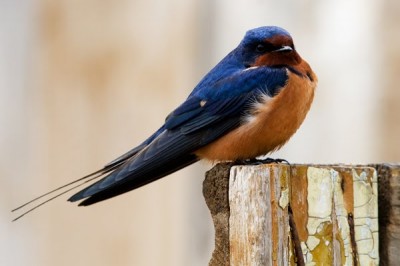Fukushima Worse than Chernobyl: “Effects of Radiation Have Become Much More Severe” — “Enormous Decline” in Animal Species

Dr. Tim Mousseau, USC biologist: “The declines have been really dramatic… now we see this really striking drop-off in numbers of birds as well as numbers of species of birds. So both the biodiversity and the abundance are showing dramatic impacts in these areas with higher radiation levels, even as the levels are declining.”University of South Carolina, Apr 15, 2015 (emphasis added): Dwindling bird populations in Fukushima… as several recent papers from University of South Carolina biologist Tim Mousseau and colleagues show, the avian situation there is just getting worse… They recently published a paper in the Journal of Ornithology showing results from the first three years…Many populations were found to have diminished in number as a result of the accident, with several species suffering dramatic declines… What might be most disheartening to the researchers involved, and bird-lovers in general, is how the situation is progressing in Fukushima. Despite the decline in background radiation in the area over these past four years, the deleterious effects of the accident on birds are actually increasing.
CBS News, Apr 16, 2015: Near site of Fukushima disaster, birds still in peril… birds are becoming a rarity around the damaged nuclear site… “There are dramatic reductions in the number of birds”… Mousseau told CBS News. “In terms of barn swallows in Fukushima, there had been hundreds if not thousands in many of these towns where we were working. Now we are seeing a few dozen of them left. It’s just an enormous decline.”… Around Fukushima, Mousseau predicts the worst may not be over… “So now we see this really striking drop-off in numbers of birds as well as numbers of species of birds. So both the biodiversity and the abundance are showing dramatic impacts in these areas with higher radiation levels, even as the levels are declining.” Mousseau said the reason comes down to the long-term impact of the radiation. “It takes multiple generations for the effects of mutations to be expressed…”
Journal of Ornithology, A. Møller, I. Nishiumi and T. Mousseau, March 2015: Cumulative effects of radioactivity from Fukushima on the abundance and biodiversity of birds… overall abundance and diversity of species on average decreased with increasing levels of background radiation… the relationship became more strongly negative across years… Although there has been great public interest concerning the ecological, genetic and potential health consequences of the Fukushima radiological disaster, basic research to date has been surprisingly limited… Recent seminal studies of butterflies exposed to radioactive contaminants associated with the Fukushima disaster found strong evidence for increased mutation rates, developmental abnormalities and population effects as a direct consequence of exposure to radionuclides… Murase et al. (2015) made an equally compelling case for radiation having a negative impact on reproductive performance in the decline of Japanese goshawks.
Environmental Indicators (Journal), A. Møller and T. Mousseau, 2015: Many species occur both at Chernobyl and Fukushima, allowing a test of similarity in the effect of radiation on abundance….among the 14 species occurring at both sites [the] slope of the relationship between abundance and radiation for the 14 common species was… much stronger at Fukushima… [Since 2011] the effects of radiation on abundance became much more severe.
Watch the researchers bird counting in Fukushima at a “very hot and quiet site”

